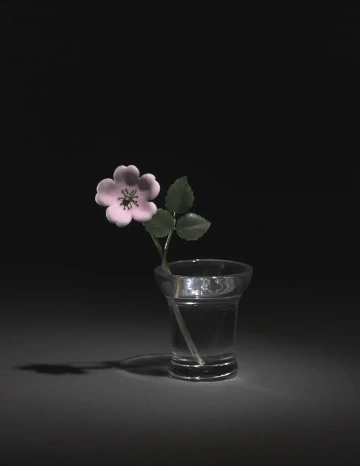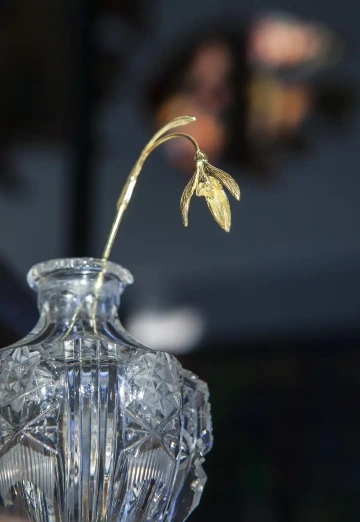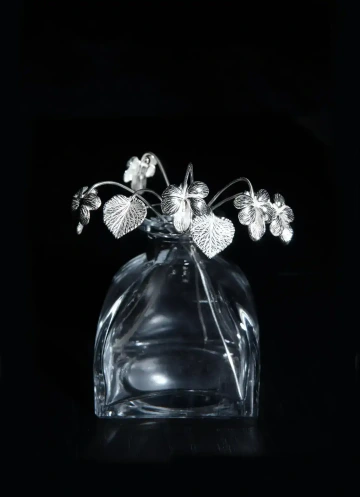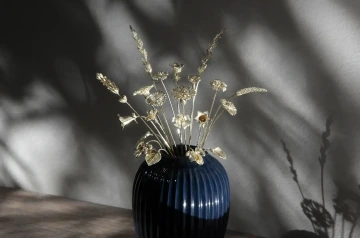About jewel flowers, Czechia, Fabergé, and luxury
July 20, 2024
Interview with Radek Bláha about GIYOU, jewel flowers, their origin, symbolism, customers, weddings, and luxury products.
How did GIYOU originally came to be and what’s the next step?
Radek: The beginning was pretty intense, contrary to our expectations. We first started selling the flowers in our e-shop, and then we opened a brick-and-mortar store in Prague and received a couple of highly unusual commissions. This year we plan to exhibit our flowers more, promote them much more than before, and move forward in several areas we’ve been neglecting a bit due to time constraints.
Is it fair to say that GIYOU flowers are a Czech product?
Radek: Cultural origin is one of those things that are hard to define. Everything gets mixed up. But they were born in a Czech garden in a small village in Bohemia and are made by Czechs in Czechia. So if GIYOU can be said to have any nationality at all, it’s Czech. Which makes me quite happy.
Even though Czechs don’t exactly have a reputation as master jewellers you could rely on abroad?
Radek: Czechia may not have a strong history of jewellery-making that’s easily recognisable abroad, but it does boast significant craftsmanship as can be seen in other areas. There’s a particular way of thinking and creativity.
In terms of Czechia’s jewellery-making reputation, it’s a question of whether it’s even necessary. Today, people want quality, surprise, joy, and to live their lives. It seems to me that nationality and a field or brand’s history are no longer as important as they used to be.
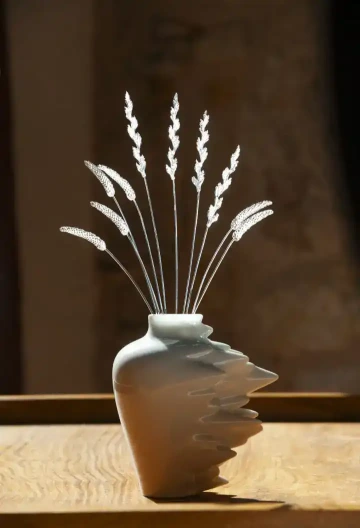
Jewellery ryegrass and plantain in a vase
Your flowers aren’t worn on the body or clothing. Is it possible people use them to express their identity?
Radek: People definitely view them as a strong expression. There are many things in life that serve multiple functions, yet people don’t wear them. And possibilities of self-identification are very loose today. There are new ways of self-identifying, including the option not to identify yourself with anything at all. Silver and golden flowers occupy a place somewhere between jewellery and objet d'art (like the works of Carl Fabergé or Cartier). Additionally, their use makes them similar to “rare” fresh flowers.
In my view, they preserve some of the effortlessness and emotions contained in fresh flowers. People are naturally attracted to fresh flowers, and the options of discovering a special identity in fresh flowers are so weak, or rather so broad they don’t even warrant mentioning.
This isn’t the case with silver and golden flowers. Still, our products and customers are quite diverse. A single silver flower satisfies different needs than a large bouquet of gold. But all these needs have their own meaning and we approach them the same.
You mentioned Fabergé. Were you influenced by his flowers?
Radek: When we first started out, we didn’t even know about Faberge’s flowers. We began learning about the field’s history and the current market only after we made and launched the first flowers. We followed our own vision, not someone else’s manual which, by the way, doesn’t even exist.
Fabergé first started making enamel, gold and gemstone encrusted flowers around the 1890s. Roughly 80 of them have survived to this day. They’re rarely auctioned off, most recently for hundreds of thousands GBP. He was the star goldsmith of his time, providing original jewels primarily to the court of the Russian tsar. He also loved flowers, Chinese and Japanese botany, and most importantly wild flowers.
His work couldn’t be more different from GIYOU. But considering how rare precious metal flowers are, we like to refer to Fabergé as one of the few historical precedents.
Could you tell me more about the wide price range of GIYOU flowers?
Radek: The variety of flowers, as well as the option of compiling bouquets of different sizes and metals of different values, is a plus. It does result in a wide price range but I think people expect that. The different prices, however, do effect our communication style.
Are you launching a limited flower species this year?
Radek: No, not this year. Globally speaking, our production is so miniature that it wouldn’t make any difference if we sold a million more products than we currently do. Besides, perhaps the more we sell, the higher the demand. But we are aware that limited products make sense. Additionally, our entire product range is time-limited. Each year we launch a few new flower species and after a while discontinue some of the old ones, leaving a few specimens for display purposes and stopping the production.
Who usually buys the flowers, men or women?
Radek: GIYOU is more of a feminine product and targets mostly women. Surprisingly to me, it’s women who make up the chunk of our customer base. Sometimes they even buy flowers for the men in their life. Perhaps we eventually find out that the flowers embody a combination of the feminine and masculine. Or maybe we’ll be able to bring said combination to the surface. It’s men, however, who buy larger and more expensive bouquets.
It seems that men need more time to process new things and require a good explanation in order to accept them. Which is our job and I trust that men will come to see the usefulness of our flowers, easily surpass women, and will be buying for them.
You said that your flowers are useful…
Radek: Quite, in real-life terms. Just like fresh-cut flowers, art, beautiful jewellery, or something made in order to be given. They’re an especially good choice as a unique gift or something to put in a vase as a decoration. Also for various special moments, such as weddings, engagement, or as a token of appreciation. People also collect them to make a family vase. We make things that serve an ornamental or symbolic function. Creating and sharing beauty is a natural thing for humans to do and so useful we can’t live without it.
Do people buy GIYOU flowers for their weddings?
Radek: In 2020, 1.4 million weddings were officiated in the EU. Engagements and weddings partly rely on tradition and I believe we’re about to experience quite a few changes in this area to catch up with our modern times and the nature of current relationships.
More and more people will look to find their own wedding and engagement symbols, showing no interest in tradition. So far, not many such alternatives have popped up. I trust that GIYOU flowers will not only be used as wedding gifts, wedding bouquets, or opulent wedding decorations, but also as an original new symbol of engagement and marriage. They provide an interesting, non-traditional alternative to engagement and wedding rings.
Where stands gifting nowadays and what’s the development there?
Radek: We’re very interested in the topic of gifting and its evolution, and devote a lot of time to the issue. There’s a noticeable shift towards experiences in the broadest sense of the word; towards original, unique things, personal sharing, art, and luxury.
How has the notion of luxury evolved?
Radek: Luxury brands still emphasise having a strong story and expressing one’s identity, along with rarity, quality, and aesthetics. But they too are undergoing a great change. The traditional exclusivity of luxury products is no longer enough, or is conceived differently and much more openly than before. Since luxury brands and products are abandoning their traditional strongholds, they need to find other ways to demonstrate their purpose. This is also effected by the customer base broadening, as well as the evolving nature of who the traditional customer is.
Luxury brands can hardly keep relying on status; rather they must seek and appeal to people’s shared interests and ways of thinking. Moreover, the current and potential customers of luxury brands have recently been exhibiting diverse preferences - towards an extreme, maximalist lifestyle on one hand, and minimalism on the other, namely towards simplifying one’s own life, owning fewer but higher quality things, gaining more mindfulness, and assessing the brands’ stories from this new-found perspective.
Disproportionate exclusivity without a comprehensible additional purpose would cost luxury brands a significant portion of their customers.
And what’s GIYOU’s place among luxury products?
Radek: By democratising luxury, a space is made for small businesses to enter the market, launch exclusive products, and appeal to customers with new values. GIYOU is based on subtlety, intimacy, natural beauty, and joyful, creative life, all emphasised by rarity, masterful craftsmanship, aesthetics, and personal services with a touch of exclusivity and luxury. All this we intend to provide to people.
GIYOU
Radek Bláha, CEO

